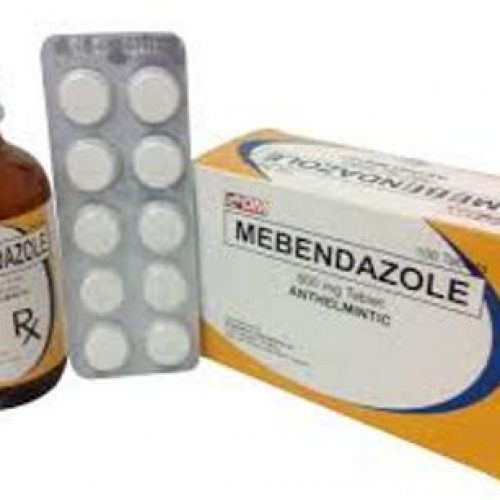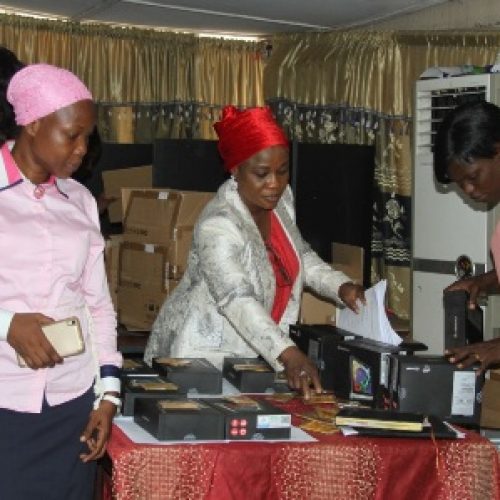Doctor, this waist pain is killing me!
Dear doctor,
I have three health problems that have become a serious source of worrying since the third quarter of this year.
First, I have this nagging waist and back pain which does not allow me to sit at a spot for more than 20 minutes. This often makes me really uncomfortable both in the church and office. I don’t think I should be having this kind of problem at my age. I’m 28 and currently planning my wedding for next year.
I’ve also noticed that a liquid comes out of my breasts when pressed. Is this normal? Please tell me the cause of this problem and how it can be effectively treated. Could there be any complication?
Lastly doctor, I have stretched marks on my laps and people say it is because I’m fat. They tell me it’s also a sign that I will have many children in future. The truth is, I’m really bothered. Right now, I find it very difficult to undress before anyone. Kindly recommend a cream or anything to remove these ugly marks.
Tawa, Ibadan
Dear Tawa,
I am sorry about your back and waist pain. Back pain is usually as a result of bad posturing while sitting, standing, pushing or pulling heavy objects, bending awkwardly, overusing the muscles (during sports or repetitive movements)or lifting incorrectly. This can occur at any age.
Back pain is usually caused by minor sprains, strains or injuries, or a pinched or irritated nerve. This can be as a result of everyday activity at home or at work or developing gradually over time. Certain factors increase the chances of you getting back pain which include
Being overweight – extra weight puts pressure on the spine which can lead to a strain causing pain
Long – term use of certain medications for instance corticosteroids which have been known to weaken bones
Pregnancy – the extra weight of carrying a baby can place additional strain on the back.
Being stressed or depressed.
In some cases, back pain is as a result of certain medical conditions which include;
Sciatica/slipped or prolapsed disc. Asides lower back pain, other symptoms would include numbness and a tingling sensation that travels down one leg.
Arthritis – joint pain including the back when walking and stiffness first thing in the morning.
Most cases of back pain improve on its own and do not warrant seeing a doctor.
I would suggest, if your back pain has only started recently, to take-over-the counter painkillers such as ibuprofen (with meals) or paracetamol if you feel you need to. Use hot or cold compression packs, if you can’t get this a simple hot water bottle or a pack of frozen vegetables/pack of Ice cubes will suffice.
As I mentioned earlier it is usually due to bad posturing so, making some life style adjustments would be helpful. If you’re overweight, you’ll need to lose weight. Ensure that at all time, when sitting, standing, lifting, pushing or pulling, you endeavour to avoid placing pressure on your back. Ensure it stays strong and supple. Do not sit for long hours on one spot, avoid long drives, in situations where you’re unable to, take a break and walk around for 15mins after every hour.
If symptoms persist up to 6weeks, please see your doctor.
As regards the milky discharge from your breast, the answer to those questions depends on the colour, consistency and smell of the liquid. Also has there been any pain or changes in structure? The information is vague but if it’s a milky discharge it could be indicative of high prolactin (a hormone which stimulates milk production when pregnant. Pus is indicative of an infection probably an abscess but you would also probably have a fever. Greenish or bloody discharges are indicative of a more serious condition.
Breast discharge can also occur as a result of stimulation of the breast during foreplay or with the use of contraceptive pills or even in early stages of pregnancy.
I would advise that you book an appointment with your gynaecologist or GP.
Stretch marks occur as a result of distension (stretching) of the skin which can be caused by several factors which include; pregnancy, rapid weight gain or weight loss, during puberty, family history , after prolonged used or inappropriate use of certain medications (corticosteroids – which can be found in certain creams and lotions used to treat certain skin conditions like eczema)
It could also be indicative of an underlying health condition such as Cushing’s syndrome (where the blood contains high levels of a hormone called cortisol).
Stretch Marks are known to fade over time and rarely need extensive treatment.
However, there are a few treatment options available although their efficacy isn’t guaranteed.
Creams, gels and lotions manufacturers often claim they can remove stretch marks. However, it’s unlikely that this prevent its occurrence, or even makes them fade any more than they will over time. Palmer’s cocoa butter Massage lotion, Bio oil, Aveeno Moisturizing lotion, are just a few that claim to remove stretch marks although their efficacy is not guaranteed.
Other options include cosmetic camouflage, using make –up to mask the areas affected. Water proof make up can last two to three days.
Laser therapy won’t completely remove stretch marks but will help them fade. It is usually expensive and more than one therapy session would be required.
Cosmetic surgery which is expensive and not highly recommended as surgery carries its associated risks.
There are some things you can do to help reduce the chances of developing more stretch marks. These include avoiding rapid weight gain and weight loss. If you need to lose weight do it gradually. You shouldn’t lose more than 0.5kg a week.
Eat a healthy balanced diet rich in vitamins and minerals, particularly vitamins E and C and the minerals zinc and silicon. This will help keep your skin healthy.
Hope this helps.
About author
You might also like
My pregnant sister has swollen legs, constantly feels dizzy and tired. Is this normal?
Dear Doctor, My 27-year old sister is four months pregnant. It’s her first pregnancy but she’s yet to register at any hospital for her ante-natal care. Someone advised her to wait till
WHO to distribute Paediatric chewable worm medicine to endemic countries
The World Health Organization (WHO) will begin distributing a paediatric (chewable) formulation of mebendazole to countries with a high prevalence of soil-transmitted helminthiases (intestinal worms). Mebendazole is one of the
Maternal, Perinatal Death Surveillance and Response goes digital in Lagos
Twenty-three public secondary health facilities, and the Lagos State University Teaching Hospital have commenced electronic auditing of maternal and perinatal deaths to improve survival of the usually vulnerable groups. The








0 Comments
No Comments Yet!
You can be first to comment this post!